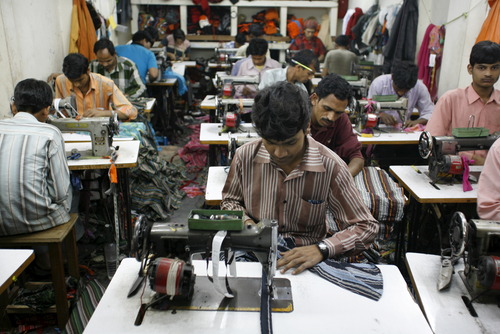India proposes informal forum to resolve RCEP issues

The Economic Times | 15 February 2016
India proposes informal forum to resolve RCEP issues
By Kirtika Suneja
Keen on an expeditious conclusion of the biggest trade accord in Asia, India has proposed the creation of a forum for in formal resolution of prickly issues under the planned Regional Comprehensive Economic Partnership (RCEP).
The forum would be on the lines of one under the recently concluded US-led Trans
Pacific Partnership (TPP), which has raised many concerns in India. Commerce and industry minister Nirmala Sitharaman has said that TPP will have an impact on India’s exports in sectors such as pharmaceuticals, textiles and chemicals.
The forum will seek to informally resolve issues other than those related to tariffs so as to reduce long-drawn regulatory and legal disputes as the RCEP talks go ahead. "It is an informal mechanism so that issues don’t get escalated to legal levels. The inspiration was ad hoc discussions' mentioned in the TPP," said an official aware of the matter.
The non-tariff measures refer to prohibitions, conditions or specific market requirements that restrict trade between countries.The proposal will be discussed at a meeting of the RCEP in Brunei from February 15 to 19.
Under the proposed mechanism, which India floated a few weeks ago, any of the 16 RCEP countries can resolve issues with each other without legal hassles.In the first step, the aggrieved party raises a query on paper and the party being questioned has to give a written response.
Onad hoc discussions,’ the TPP agreement says that "a party (the requesting party) may request ad hoc discussions on any matter arising...including a specific non-tariff measure that the requesting party believes may adversely affect its interests in trade in goods...by delivering a written request to another party (the requested party)."
However, since the mechanism is sought to be voluntary and doesn’t mandate the other country to resolve the issue, India has also mooted the idea of maintaining records so that all countries are aware of the non-responders. The proposal also talks of third-party facilitators in case there’s no resolution.
"The mechanism also helps because instead of direct bilaterals, it lets other countries with similar grievances to join in based on the consent of the party being questioned," the official said.
RCEP is envisaged as a comprehensive free-trade agreement subsuming goods, services, in vestment, competition, economic and technical cooperation, dispute settlement and intellectual property rights between 10 countries under the Association of Southeast Asian Nations umbrella and their six free-trade agreement partners - Australia, China, India, Japan, Korea and New Zealand.





